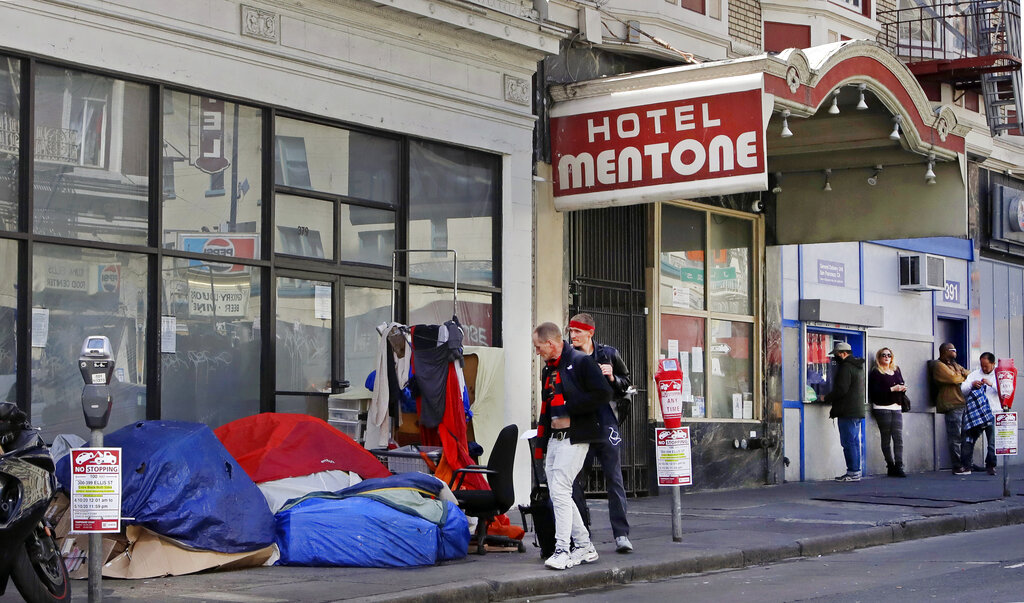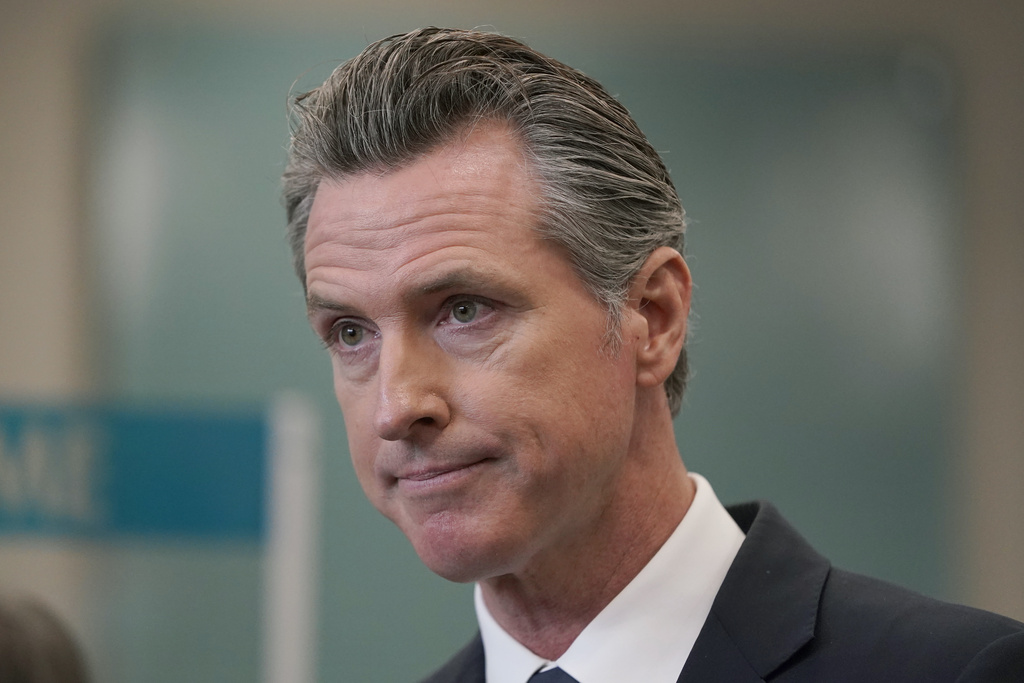
California cities and counties are on the hook for $300 million in coronavirus aid the state says was promised to them by the Federal Emergency Management Agency but then reneged, leaving many communities already facing financial shortfalls, scrambling to cover their portion of the bill.
Sonoma County, for example, has $32 million to pay back, while San Diego County has up to $28 million, and San Francisco is looking at a $114 million bill.

The surprise clawback comes after Gov. Gavin Newsom (D-CA) launched a program during the height of the COVID-19 pandemic to get his state’s homeless population into hotels to stop the spread of the deadly disease. At the time, state and local governments were told that FEMA would foot three-quarters of the hotel bills. But now, in a stunning reversal from the federal government, California’s cities and towns are looking at a mountain of unpaid bills.
“It’s going to be quite a problem in the next few years if something doesn’t change to fix it,” Wendy Huff Ellard, a disaster recovery lawyer with Baker Donelson who represents several California counties seeking compensation from FEMA, told CalMatters.org.
In October, FEMA sent the state a letter saying it would not pay for hotel stays for the homeless that were longer than 20 days between June 11, 2021, and May 11, 2023.
Newsom’s landmark hotel shelter program, called Project Roomkey, launched in April 2020, about a month after he declared a state of emergency. Health experts were terrified that California, which has the largest homeless population in the country, could not properly care for its homeless, who routinely spent nights living in crowded tents on littered and unsanitary streets. Experts also warned that the virus would also wreak havoc in crowded shelters and in food lines.

Project Roomkey’s mission was to provide rooms to homeless people most vulnerable to hospitalization or death from COVID-19, which included people who were over 65 years old or had preexisting respiratory, immune, or other chronic diseases in empty hotel rooms.
At its peak, Los Angeles was sheltering more than 4,300 people but had eventually been scaled back to about 2,000 out of fear the federal subsidy may dry up. In all, Roomkey served about 62,000 Californians over the course of a pandemic that shut down businesses, schools, courts, and social services.
In the beginning, FEMA said it would cover 75% of the cost for eligible expenses like rooms, meals, security, and cleaning. The federal agency upped the financial commitment to 100% in January 2021.
In its letter to the governor, FEMA explained that it capped stays between June 2021 and May 2023 because transmission rates had significantly fallen. FEMA added that the Centers for Disease Control and Prevention had revised their quarantine guidelines to 20 days max and even cited Newsom lifting California’s stay-at-home order as an example he knew.
FEMA Region 9 Administrator Robert Fenton told CalMatters.org that the federal agency had made clear to the state that it wasn’t writing a blank check and that it only agreed to pay for shelter stays based on “health guidance.” He added that the governor and other state officials knew of the shifting CDC quarantine guidelines because the governor’s office, as well as state and local health departments, had followed them. He continued that the public emergency had lessened and that “the vaccine was readily available. Testing was readily available.”
California has pushed back on the $300 million bill and has asked the federal government to reconsider.
CLICK HERE FOR MORE FROM THE WASHINGTON EXAMINER
“California is committed to maximizing federal aid to local communities and intends to aggressively advocate for FEMA to rescind the decision to deny public assistance to local governments,” Brian Ferguson, a spokesman for the Governor’s Office of Emergency Services, wrote in an email to CalMatters.org.
Newsom’s spokesman Daniel Lopez added that the governor’s office is looking forward to FEMA “honoring its commitments.”






